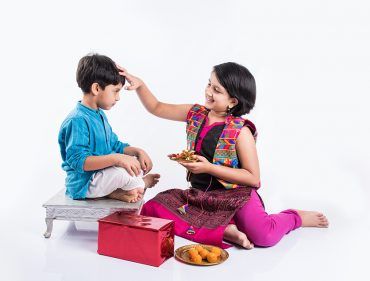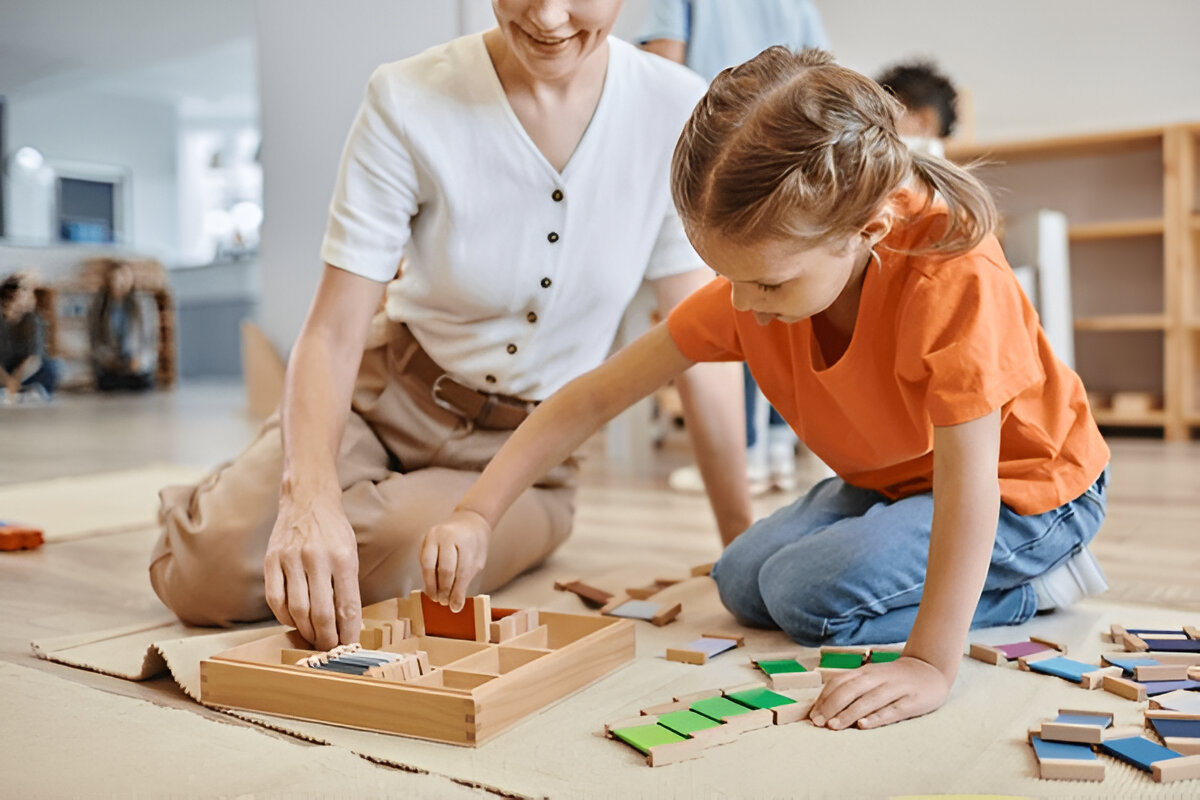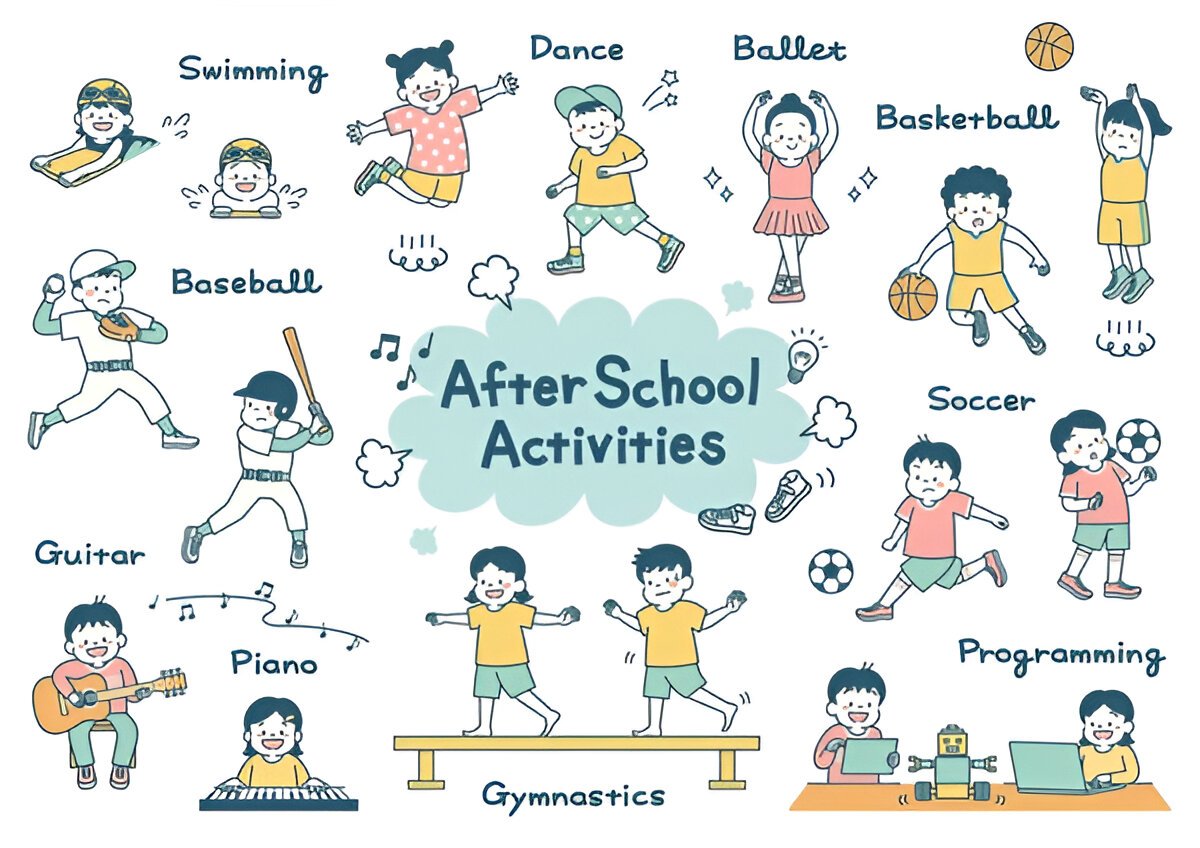Sibling jealousy is perfectly natural, in fact, researchers show that 85% of families with children have siblings who have to deal with sibling jealousy. But what is it about siblings that prompts them to fight with one another rather than rely on one another as Siblings?
Such issues derive from struggles for parental attention, developmental differences, and natural differences in temperament and nature. Children often view siblings as competitors and therefore constantly fight over toys, space attention and resources.
However, Raksha Bandhan is the perfect time to begin changing this dynamic. Raksha Bandhan is a sacred festival that celebrates siblings and provides families with an opportunity to create a shift from just deal with sibling jealousy to collaboration.
The Psychology Behind Sibling Jealousy

Why Brothers and Sisters Compete?
Sibling rivalry originates from simple human psychology. In children, humans have a fundamental need to be respected and they may feel they can only achieve that inside their family. When a sibling gets developed with or praised, gets a toy, or their mother’s attention, the other child feels they are being oppressed.
Common triggers are:
- Age gaps: The older child may feel resentful when the younger child receives “easier” treatment.
- Different abilities: Creating an academic or athletic comparison can create comparison pressure on both children.
- Perceived and real favoritism by the parents: Children are sensitive to toddlers when their parents don’t pay them equal attention
- Limited resources: Fighting over toys, space, or parents time.
The Developmental Factor
Understanding your children’s developmental stages is critical, and should be helpful for your understanding of sibling challenges. A 4 year old and an 8 year old will deal with sibling jealousy on very different levels emotionally and cognitively. Without parental guidance it may be difficult for those siblings to create natural teamwork feelings.
How to Deal with Sibling Jealousy: Practical Strategies

1. Create Collaborative Goals Instead of Competition
Change “me vs. you” into “us vs. the challenge“. Rather than pitting siblings against one another, consider opportunities for them to work together with a common goal.
For example:
- Raksha Bandhan preparation: “Let’s work together and make the most beautiful rakhi for one another”
- Home projects: “You two can help us reorganize the playroom before the festival by working together”
- Creative challenges: “Can you two create a special dance performance for us for our Raksha Bandhan celebration?”
2. Establish Individual Identity While Building Unity
Every child needs to feel they are special and valued for unique characteristics while recognizing their contribution to the sibling team. That’s the way to deal with sibling jealousy.
Implementation strategy:
- Highlight individual strengths: “Maya is our family artist, and Arjun is our family’s problem solver”
- Assign synergistic roles: Allow each child to contribute their strengths to family activities.
- Do not compare: “Why can’t you be more like your brother/sister?”
3. Teach Conflict Resolution Skills
Give your kids the skills to handle conflict on their own instead of stepping in every time.
The PEACE Method:
- Pause: Stop and breath deeply
- Explain: Each person expresses their view
- Agree: Find something you can both agree on
- Create: Come up with a solution together
- Evaluate: See if that solution worked
Building Teamwork Through Raksha Bandhan Traditions

Pre-Festival Team Activities
Week 1: Planning Together
- Joint shopping trips: allow siblings to pick out gifts for each other
- Rakhi making: make the rakhis together as a group project
- Menu planning: consider specials foods you want to make and decide together
Week 2: Preparation Stage
- Room decoration: decorate shared rooms together
- Story telling: research and tell each other stories about the legends of Raksha Bandhan
- Gratitude activities: assist siblings to generate the things about each other that they appreciate
Creating New Family Traditions
Create yearly team traditions that live past the event:
- Sibling mission task/event: Monthly challenges that require teamwork
- Thankfulness rituals: Weekly times for siblings to recognize each other’s support
- Co-created charts of shared responsibilities: Age-appropriate tasks they’re completing together
Age-Specific Strategies for Different Developmental Stages

Toddlers and Preschoolers (Ages 2-5)
Prioritize parallel play and basic cooperation:
- Games with shared turns: Consider the use of timers to make sharing predictable and fair
- Joint art projects: Large drawing, group craft
- Simple helper roles: Older sibling is helping younger siblings with simple tasks
School-Age Children
Emphasize responsibility and problem-solving:
- Teamwork challenges: Puzzles or construction projects requiring joint effort
- Shared responsibilities: Age-appropriate shared chores they can do
- Practice conflict resolution: Discussion with guidance on situation where fairness or compromise arise
Tweens and Teens
Foster emotional intelligence and mutual respect:
- Important Discussions: Discuss values of family, as well as how siblings relate to one another
- Collaborative Projects: Planning family gatherings, helping younger siblings
- Independence With Connection: Learning to grow as an individual while still honoring a role as part of the family.
Common Mistakes Parents Make (And How to Avoid Them)
The Comparison Trap
Do not make direct comparisons between siblings. For example, the phrase – “Your sister cleans her room all the time,” is more likely to create resentment than motivate.
Instead, say: “When you two help each other clean, it gets done quicker and it seems more enjoyable.”
Taking Sides in Conflicts
Don’t act as the referee in conflicts with your children unless there’s immediate danger involved. This teaches children to await outside help instead of practicing their own methods of conflict resolution.
A better Response I like to use is: “I can see that you both feel really strongly about this! Let’s see if we can come together and sort this out.”
Forcing Teamwork
Real cooperation can’t be compelled. Simply telling siblings to “be nice” or “just be brothers” without addressing root causes often backfires.
Better: Provide opportunities and incentives for authentic collaboration while addressing root causes.
Frequently Asked Questions
How long does it typically take to see improvements in sibling relationships?
Through daily use, almost all families will see positive results in 2-4 weeks of employing teamwork strategies. Nevertheless, the change becomes more permanent with 3-6 months of consistent use. The most important aspects are consistency and patience – relationships do not change overnight.
What if my children have a large age gap?
Age gaps of 4+ years require alterations to approach. Concentrate on mentor-mentee relationships in which the older child is mentoring the younger child. Develop task or activity in which different abilities complemented each other compared to competing with each other. An example could be letting older children read stories while younger children draw images from the story as they are read.
Should I intervene in every sibling conflict?
Step in only when you see safety at risk or children are truly stuck. Most sibling conflicts offer good learning opportunities for negotiation and problem solving. Allow children to struggle for 5-10 minutes before stepping in with a prompt.
How do I handle one child who consistently instigates conflicts?
As you consider the behavior, think of the need behind it. Children who are often the first in conflict typically are not feeling secure about their position within the family or do not receive attention for positive engaged behaviors. Do more one-on-one time with this child, and specifically praise cooperative behavior.
What if traditional Raksha Bandhan customs don’t fit our family structure?
Tailor traditions to your own family context. The main thing is to celebrate sibling-hood, and this might include (for example) step-siblings, adopted siblings, and/or close cousins. Construct your own meaningful traditions that focus on protection, gratitude, and support for one another.
Creating Your Family’s Raksha Bandhan Teamwork Plan
Creating Your Family’s Raksha Bandhan Teamwork Plan
Week 1: Assessment and Goal Setting
- Observe current sibling dynamics without judgment
- Identify specific areas where teamwork could improve
- Set realistic expectations based on your children’s ages and personalities
Week 2: Introduction and Practice
- Introduce the concept of siblings as teammates
- Start with small, manageable collaborative activities
- Celebrate early successes to build momentum
Raksha Bandhan Day: Celebration and Commitment
- Acknowledge improvements made during preparation
- Create sibling vows – promises to support each other
- Plan future teamwork activities to continue beyond the festival
Post-Festival: Maintaining Momentum
- Weekly check-ins on sibling cooperation
- Monthly team challenges to keep collaboration active
- Annual tradition review – what worked well and what to improve
The Long-Term Benefits of Sibling Teamwork
The Long-Term Benefits of Sibling Teamwork
Children who learn to cooperate with siblings develop crucial life skills:
Enhanced Emotional Intelligence
Through understanding different perspectives
Improved Conflict Resolution
Abilities that serve them in all relationships
Stronger Family Bonds
That provide lifelong support systems
Better Work Preparation
For collaborative work environments
Increased Empathy
And consideration for other’s needs and feelings
📊 Research shows that positive sibling relationships in childhood correlate with better mental health, stronger marriages, and more successful careers in adulthood.
Check out Kinzy Club Blogs for more such helpful articles.
Also do check our Kinzy App to create fun memorable stories through our advanced Ai assistant with your kids.




